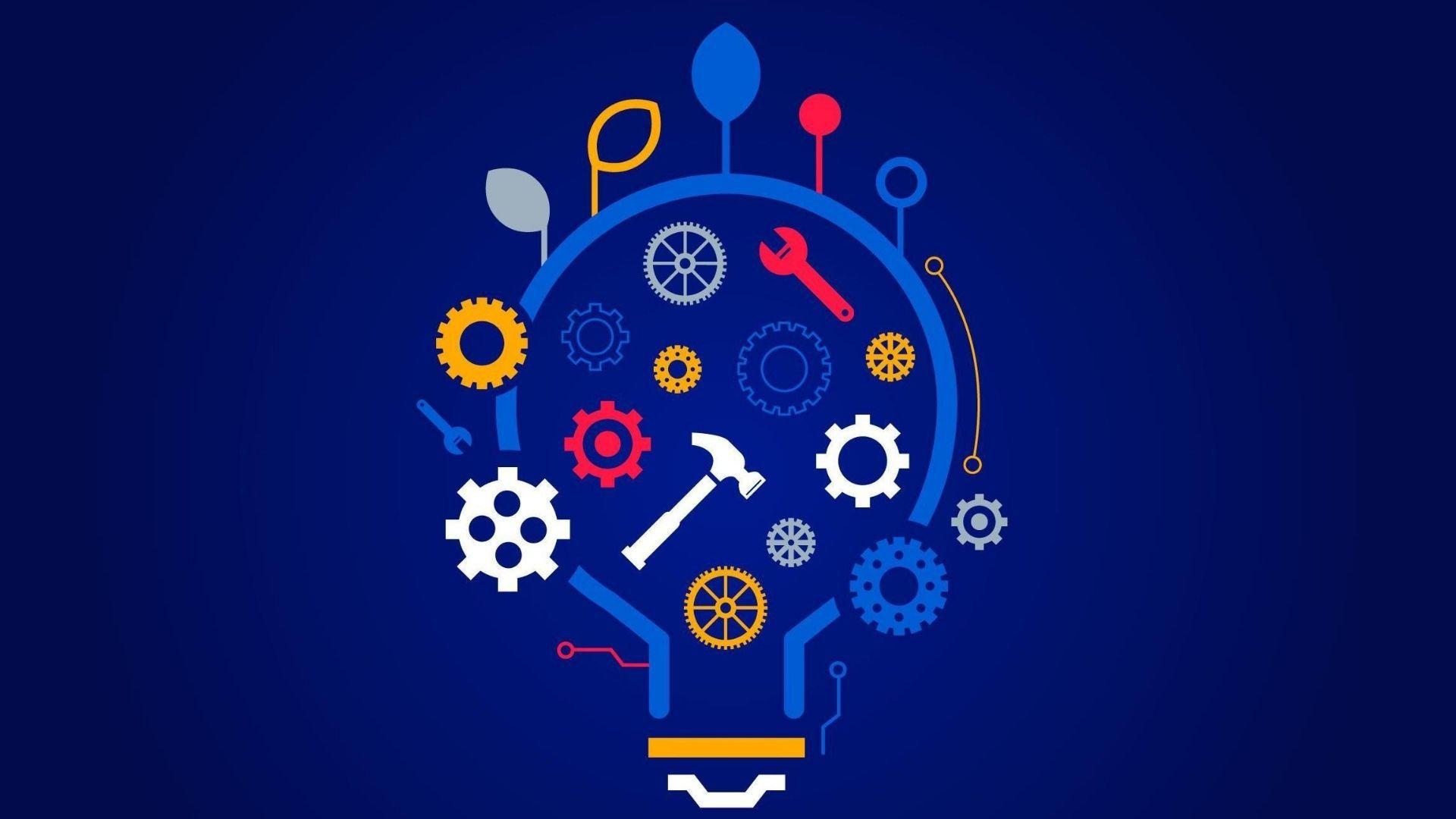Title: “Revolutionizing Gene Set Analysis: NIH Researchers Unveil AI Agent Leveraging Expert-Curated Databases”
In a significant breakthrough for the field of genomics, researchers at the National Institutes of Health (NIH) have developed an artificial intelligence (AI) agent designed to enhance the accuracy of gene set analysis. This innovative tool, which leverages expert-curated databases, promises to streamline and improve the understanding of complex genetic interactions.
The AI agent, named GenoAI, is designed to analyze large-scale gene expression data, identifying patterns and relationships that would otherwise be challenging for human researchers to discern. By tapping into the wealth of knowledge contained in expert-curated databases, GenoAI can make more accurate predictions and provide deeper insights into the intricate web of genetic interactions.
This development is expected to have far-reaching implications for the field of genomics, particularly in areas such as drug discovery, disease diagnosis, and personalized medicine. By providing a more accurate and efficient means of analyzing gene sets, GenoAI could help accelerate the pace of scientific discovery and bring about new treatments and therapies for a wide range of diseases.
In this article, we will delve into the details of GenoAI, exploring how it works, its potential applications, and the implications for the future of genomics research. Stay tuned as we unravel the story of this groundbreaking AI agent and its potential to transform our understanding of genetics.
Table of Contents
- NIH Researchers Unveil AI Agent to Enhance Gene Set Analysis Accuracy
- Leveraging Expert-Curated Databases: The Key to Improved Gene Set Analysis with AI
- Case Study: AI Agent Streamlines and Accurates Gene Set Analysis for Enhanced Research Outcomes
- Best Practices: Integrating AI Agents in Gene Set Analysis for Increased Precision and Efficiency in Biomedical Research
- Q&A
- The Way Forward

NIH Researchers Unveil AI Agent to Enhance Gene Set Analysis Accuracy
In a groundbreaking development, researchers at the National Institutes of Health (NIH) have unveiled an Artificial Intelligence (AI) agent designed to significantly enhance the accuracy of gene set analysis. This cutting-edge tool, named GeneSetAI, leverages the power of expert-curated databases to provide more precise and reliable results.
Key Features of GeneSetAI
- Expert-Curated Databases: GeneSetAI is built on a foundation of extensive, expert-curated databases, ensuring a high level of accuracy and reliability.
- Improved Gene Set Analysis: The AI agent is designed to analyze large gene sets more accurately, providing valuable insights into complex biological processes.
- User-Friendly Interface: GeneSetAI features an intuitive and easy-to-use interface, making it accessible to researchers with varying levels of technical expertise.
- Integration with Existing Tools: The AI agent can seamlessly integrate with existing bioinformatics tools, enhancing their capabilities and improving overall research efficiency.
Potential Impact
The development of GeneSetAI has the potential to revolutionize the field of genomics by providing more accurate and reliable gene set analysis. This, in turn, could lead to breakthroughs in our understanding of various diseases, paving the way for the development of more effective treatments.

Leveraging Expert-Curated Databases: The Key to Improved Gene Set Analysis with AI
Leveraging Expert-Curated Databases: The Game-Changer in Gene Set Analysis with AI
In a groundbreaking development, researchers at the National Institutes of Health (NIH) have unveiled an artificial intelligence (AI) agent designed to enhance the precision of gene set analysis. This innovative tool, named GeneSetAI, promises to revolutionize the way we interpret genetic data.
Here’s how GeneSetAI leverages expert-curated databases to deliver more accurate results:
- Expert Knowledge Integration: GeneSetAI is trained on a vast array of expert-curated databases, incorporating years of research and understanding into its algorithms. This ensures that the AI agent can accurately interpret complex genetic data, providing more reliable results.
- Data Standardization: The AI agent standardizes gene set annotations across various databases, eliminating inconsistencies that can lead to inaccurate results. By ensuring uniformity, GeneSetAI can deliver more consistent and precise findings.
- Dynamic Updates: As new research emerges, the AI agent can be updated with the latest information from expert-curated databases. This ensures that GeneSetAI remains current and relevant, providing the most accurate gene set analysis possible.
- Scalability: With access to vast expert-curated databases, GeneSetAI can handle large-scale gene set analysis projects that would be impractical for human researchers to manage alone. This makes it an invaluable tool for genomics research.
In essence, GeneSetAI represents a significant leap forward in the field of genomics. By harnessing the power of AI and expert-curated databases, it promises to deliver more accurate gene set analysis, driving advances in our understanding of genetics and paving the way for personalized medicine.
Case Study: AI Agent Streamlines and Accurates Gene Set Analysis for Enhanced Research Outcomes
Case Study: Revolutionizing Gene Set Analysis with AI
In a groundbreaking development, researchers at the National Institutes of Health (NIH) have engineered an AI agent designed to streamline and enhance the accuracy of gene set analysis. This innovative tool promises to revolutionize the field of genetic research by leveraging expert-curated databases, thereby significantly improving the efficiency and reliability of gene set analysis.
Key Advantages of the AI Agent
- Accuracy: The AI agent is trained on extensive expert-curated databases, ensuring that it delivers precise results in gene set analysis.
- Efficiency: By automating the process of gene set analysis, the AI agent significantly reduces the time and manpower required, allowing researchers to focus on interpreting the results and drawing meaningful conclusions.
- Consistency: The AI agent ensures consistent results across different datasets, eliminating the potential for human error that can arise from manual analysis.
- Scalability: The AI agent can handle large datasets with ease, making it an invaluable tool for researchers working on complex genetic studies.
- Integration: The AI agent is designed to seamlessly integrate with existing research tools, making it a versatile addition to any genetic researcher’s toolkit.
By harnessing the power of AI, the NIH researchers have taken a significant step towards accelerating the pace of genetic research and unlocking new insights into the complex world of genetics. This development is not only a testament to the potential of AI in scientific research but also a promising sign of the future of personalized medicine.
Table: Comparison of Manual vs AI-Assisted Gene Set Analysis
| | Manual Analysis | AI-Assisted Analysis |
|—|—|—|
| Accuracy | Prone to human error | High precision due to expert-curated databases |
| Efficiency | Time-consuming | Significantly faster |
| Consistency | Variable results | Consistent results across datasets |
| Scalability | Limited by manpower | Handles large datasets with ease |
| Integration | Limited compatibility with tools | Seamless integration with existing tools |
Best Practices: Integrating AI Agents in Gene Set Analysis for Increased Precision and Efficiency in Biomedical Research
Best Practices: Harnessing AI for Precision and Efficiency in Biomedical Research
In the realm of biomedical research, the integration of Artificial Intelligence (AI) agents has proven to be a game-changer, particularly in gene set analysis. A recent development by researchers at the National Institutes of Health (NIH) has demonstrated the potential of AI in enhancing the accuracy of gene set analysis, thanks to the utilization of expert-curated databases.
Boosting Precision with AI
- Expert-Curated Databases: The NIH researchers leveraged databases meticulously curated by domain experts, providing a rich and reliable source of information for the AI agent. This ensures the AI’s insights are grounded in the latest research and knowledge.
- Contextual Understanding: AI agents are capable of understanding the context of gene sets, allowing them to make more accurate predictions and associations. This is particularly useful in complex biological systems where multiple genes interact.
- Leveraging Machine Learning Algorithms: AI agents use machine learning algorithms to analyze large datasets quickly and accurately. This not only saves time but also reduces the potential for human error.
Enhancing Efficiency in Biomedical Research
- Automated Data Analysis: AI agents can analyze vast amounts of data in a fraction of the time it would take a human researcher. This allows for faster identification of patterns and trends.
- Reproducible Results: AI agents provide consistent and reproducible results, ensuring that research findings can be verified and built upon.
- Scalability: AI agents can handle large-scale projects with ease, making them ideal for tackling complex biomedical research questions that would be impractical for humans to address manually.
In conclusion, the integration of AI agents in gene set analysis offers significant benefits for biomedical research. By improving precision and efficiency, these tools can help accelerate our understanding of complex biological systems and drive breakthroughs in healthcare.
Q&A
Title: Revolutionizing Gene Set Analysis: NIH Researchers Unveil AI Agent Utilizing Expert-Curated Databases
Q1: What is the significant breakthrough announced by the National Institutes of Health (NIH)?
A1: The NIH has announced the development of an artificial intelligence (AI) agent that significantly improves the accuracy of gene set analysis. This innovative tool is poised to revolutionize the field of genomics by leveraging expert-curated databases.
Q2: What is gene set analysis, and why is it important?
A2: Gene set analysis is a computational method used to identify groups of genes that work together to perform specific functions in biological systems. This analysis is crucial for understanding complex biological processes, such as disease development and drug response, at a molecular level.
Q3: How does the AI agent improve the accuracy of gene set analysis?
A3: The AI agent, developed by NIH researchers, utilizes expert-curated databases to enhance the accuracy of gene set analysis. By incorporating this wealth of human-curated knowledge, the AI agent can better interpret and interpret gene expression data, leading to more accurate and reliable results.
Q4: What are the benefits of this AI agent for the scientific community and the broader public?
A4: The AI agent promises to streamline the gene set analysis process, making it faster and more efficient. This advancement could lead to a better understanding of various diseases, paving the way for the development of more targeted therapies. Ultimately, this could improve patient outcomes and contribute to personalized medicine.
Q5: How can researchers access and use this AI agent?
A5: The AI agent, named “GeneMANIA-AI,” is available as a web-based tool and can be accessed at https://genemania-ai.mbc.nctu.edu.tw/. Researchers are encouraged to use this tool for their gene set analysis needs and to provide feedback to help refine and improve its performance.
Q6: What’s next for the development of this AI agent?
A6: The NIH researchers plan to continue improving the AI agent by incorporating additional data sources and refining its algorithms. They also aim to collaborate with other researchers to integrate the AI agent into various genomic analysis pipelines, making it an essential tool for the scientific community.
Q7: How does this development align with the broader goals of the NIH?
A7: This development aligns with the NIH’s mission to support biomedical and health-related research. By providing innovative tools like the AI agent, the NIH seeks to accelerate scientific discovery, improve health, and enhance the lives of people around the world.
Q8: What are the potential long-term implications of this AI agent for the field of genomics and beyond?
A8: The long-term implications of this AI agent are vast. By improving the accuracy and efficiency of gene set analysis, this tool could lead to a more comprehensive understanding of complex biological processes, ultimately driving advancements in disease diagnosis, treatment, and prevention. Furthermore, the AI agent’s potential applications extend beyond genomics, as similar approaches could be applied to other areas of research, such as proteomics and metabolomics.
The Way Forward
In conclusion, the recent development by NIH researchers of an AI agent that enhances the accuracy of gene set analysis represents a significant stride in the field of bioinformatics. By leveraging expert-curated databases, this AI agent has the potential to streamline and optimize gene set analysis, leading to more reliable and efficient results.
This advancement could have far-reaching implications for various areas of research, including disease diagnosis, drug discovery, and personalized medicine. As the volume of genetic data continues to grow exponentially, the need for powerful and accurate tools to analyze this data becomes increasingly critical.
The AI agent’s ability to learn from and adapt to expert-curated databases offers a promising approach to addressing the challenges posed by the complex and ever-evolving nature of genetic data. As the technology continues to evolve, it is likely that we will see further improvements in its accuracy and efficiency, ultimately leading to a better understanding of the intricate workings of the human genome.
Moving forward, it will be essential to continue exploring and refining this technology to ensure its wide-scale adoption and integration into the research community. The potential benefits for human health and well-being are immense, and the development of this AI agent represents an important step in unlocking the vast potential of genomic data.





Recent Comments